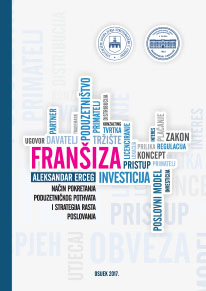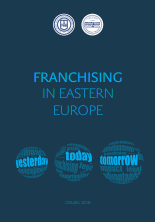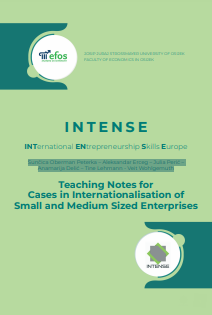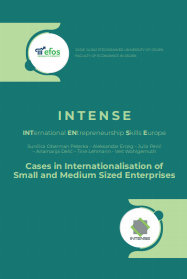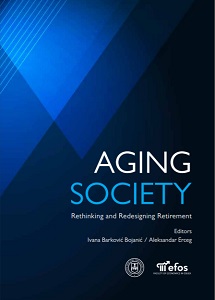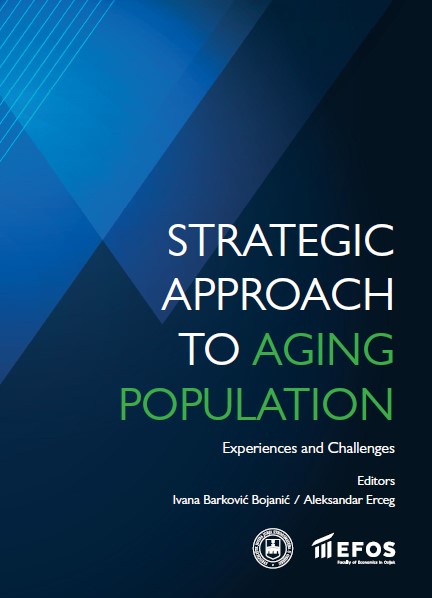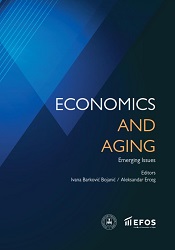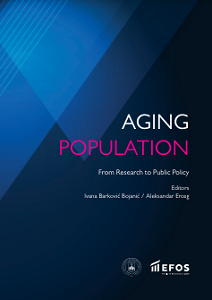Aging Society - Rethinking and Redesigning Retirement
Author(s): / Language(s): English
Keywords: demography; older population; rights; labor relations; health; healthcare; pension system; silver economy; communication; inclusion; media literacy; ICT; education; architecture;
The “Silver Tsunami” is here! According to various relevant sources such as the UN Population Division, the WHO, and the ILO, population across the world is getting older. By 2050, there will be more than 20% of the world’s population aged 65 years and over. Statistics for the European Union reveal the same - the age structure of the European population is expected to change significantly over the next decades and by 2060, the share of people aged 65 and above will increase from 18% to 30% compared to now, while the share of people aged above 80 will more than double. Thus, in addition to notions such as “Silver Tsunami”, “Age Wave”, and the like, it is not surprising that the European Union has launched a notion “Silver Economy” related to economic activities of the population aged 50 and over and their impact on various sectors of the national economy. This negative demographic transition, i.e. population aging, has shown four very distinctive features: unprecedented, pervasiveness, endurance and profound implications on human life in general. On a more personal level, what we are witnessing today as a trend, we will experience first-hand in the decades to come. Yet, times are changing. An aging population is becoming a reality that is surrounded by various myths when it comes to older people as workers or as consumers. The fact is that people today live longer and healthier lives, which requires a shift in perception of age when it comes to supply and demand sides of economics. It also holds true from the perspective of other disciplines. This, in turn, opens a new frontier in academic, practical and policy thinking about rethinking aging and redesigning retirement. This multidisciplinary edited book “The Aging Society: Rethinking and Redesigning Retirement” is one attempt not to be swept away by the “Silver Tsunami” tide. The content of the chapters reveals the multifaceted and highly complex issue of aging which brought together researchers from various fields. Aging has been initially dominant in medical research since it is primarily a physiological process, yet it has proven to be a social transformation with numerous repercussions calling for researchers from economics, communication, law and others to join the scientific discussion. The authors in this edition have tried to shed light on the potential of aging research by drawing attention to various topics such as aging as a normal process, concept and measurement of the quality of life of the elderly, financial challenges and retirement literacy of the older population, specific bioethical issues, silver architecture for seniors, protection of the rights and safety of older people in transport, social entrepreneurship and franchising, collaborative economy, an age-specific ICT use gap, media literacy and communication. The book has gathered authors from Josip Juraj Strossmayer University of Osijek – Faculty of Economics in Osijek, Faculty of Law, Faculty of Medicine Osijek / Clinical Hospital Center Osijek and Faculty of Civil Engineering and Architecture Osijek, as well as Faculty of Economics and Business Zagreb (University of Zagreb), Virovitica College, Croatian Education and Teacher Training Agency, University of Information Science and Technology, “St. Paul the Apostle” (Macedonia), Beykoz University, Vocational School at Department of Social Sciences (Turkey), Nisantasi University, Vocational School at Department of Logistics (Turkey), and Warsaw School of Economics (Poland). Such institutional diversity is a signal that the issue of aging is a universally attractive research topic that easily transcends disciplinary and national boundaries. As editors of this book, we feel obliged to applaud our authors for making a research effort and scientific contribution in the advent of the global COVID-19 pandemic crisis. Our gratitude is extended to our reviewers who have been affirmative towards the content and style of this work. The publication of this book will be a permanent reminder of strength, diligence, creativity and resilience of academic scholars as individuals and universities as institutions in times challenging us on both a personal and a professional level.
More...


